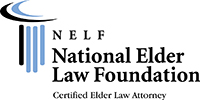by Bradley J. Frigon
In a previous article, I discussed how it is possible for a former spouse to receive all the money in a retirement plan account at the death of the account holder. This same question was recently addressed by the United States Supreme Court. In the Egelhoff case, the United States Supreme Court ruled that the children of a recently divorced decedent had no rights in the proceeds of their father's retirement plan because their father had never removed his former spouse as the beneficiary of his retirement account.
facts of Egelhoff case
The facts of Egelhoff case are as follows:
David and Donna Egelhoff were divorced in 1994. The divorce decree awarded Mr. Egelhoff his entire retirement plan. Two months after the divorce was final, Mr. Egelhoff was killed in an automobile accident. Prior to his untimely death, Mr. Egelhoff had not changed the beneficiary designation on his retirement account that read "Donna R. Egelhoff wife." Because Mr. Egelhoff's former spouse was the last named beneficiary of the retirement plan account, the plan administrator paid all of the retirement plan proceeds to her.
Mr. Egelhoff's children from a prior marriage sued the former Mrs. Egelhoff to recover the $46,000 of retirement plan benefits that was paid to her. Like most states, the state where Mr. Egelhoff lived at the time of his death had a law that automatically revoked any interest that a former spouse may have if that interest was acquired during marriage. In other words, the former spouse was treated as if he or she had predeceased the decedent. Based upon this law, Mr. Egelhoff's children claimed that state law automatically revoked Donna Egelhoff as the beneficiary of the retirement account when their divorce was final. As a result, the children should receive the retirement account and not the former spouse.
The case worked its way up to the United States Supreme Court to resolve the conflict between state law and federal law. State law required that a former spouse is automatically revoked as the beneficiary of the retirement plan when the divorce decree was final. However, under ERISA (the federal law that regulates retirement accounts), the last beneficiary designation controls who receives the retirement plan proceeds. In addition, ERISA, provides that it will supersede any and all state laws insofar as they relate to any employee benefit plan.
The Supreme Court of the United States noted that the purpose of ERISA was to establish an uniform administrative scheme which provides a set of standard procedures. If each state is allowed to impose their own laws, it would be impossible to administer retirement plans of this type. As a result, federal law controls, and the last named beneficiary will receive all of the retirement plan proceeds regardless of whether the beneficiary is still married to the decedent.
It is important to note that ERISA controls employee benefit plans such as 401(k) plans, 403(b) plans, defined benefit plans and defined contribution plans. ERISA does not control Individual Retirement Plans (IRAs). As a result, it is not clear whether the ruling in the Egelhoff case would control in the same type of dispute involving an IRA. While no one can be sure until this matter is resolved by the courts, it seems likely that a dispute of this nature would be controlled by state law and not federal law. As a result, if the dispute in the Egelhoff case had involved an IRA and not an employee retirement plan, Mr. Egelhoff's children would have prevailed and not the former wife.
lesson of the Egelhoff case
The lesson of the Egelhoff case is clear. Always check the ownership of your property and your beneficiary designations. Why take the risk that a former spouse may receive your retirement plan money. Whether you have ever been divorced or not, it is simply a good idea to check the beneficiary designation on all of your retirement accounts. One can only imagine how hurt Mr. Egelhoff's children were when they discovered that the former spouse would receive all of the money from the retirement plan. Instead, the children ended up with nothing except owing a large amount of attorney fees.
Call (720) 200-4025 now or email us to find out how our attorneys can help with your Estate Planning needs.












